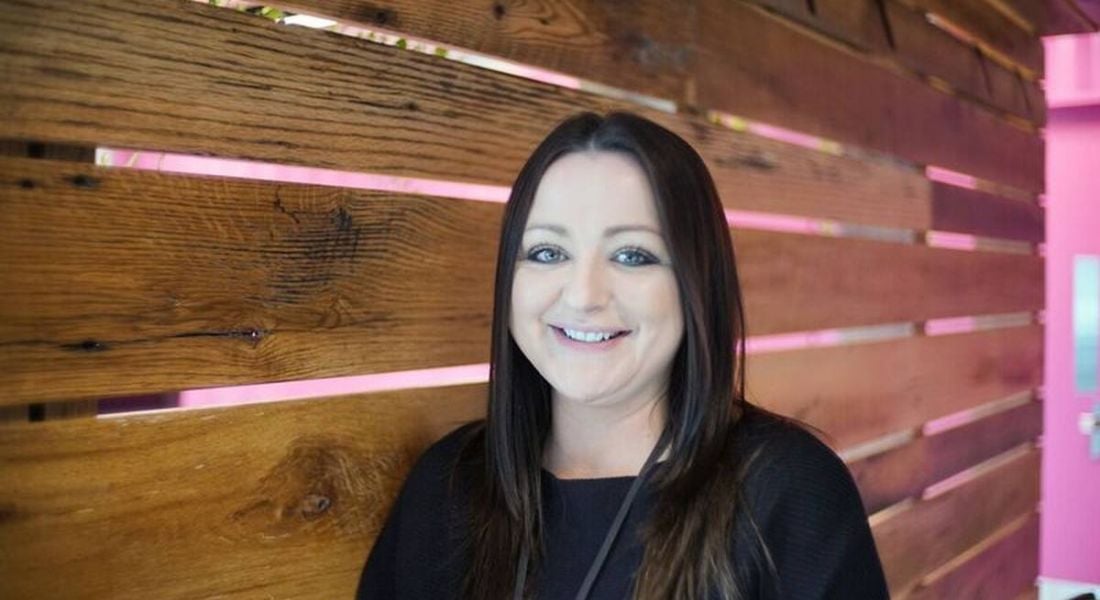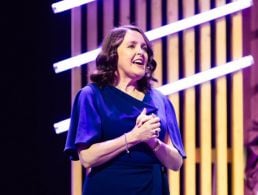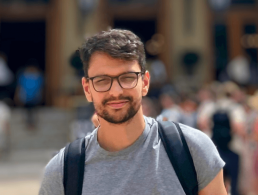Agile coach Suzanne Farrell explains how she learned to support many different teams using agile methodologies.
“An agile coach is someone who has deep experience working with project teams in an agile way,” explained Suzanne Farrell when we asked about her role at Accenture.
Working with teams at The Dock, Farrell uses agile as a continuous improvement approach to software development, through the collaborative effort of self-organising, multidisciplinary teams and end users.
“It is set around a group of values and principles, while advocating for adaptive planning and rapid responses to change,” she explained.
In this role, Farrell needs to have a handle on the fundamentals and guiding principles of agile, but what really comes to bear on her work are the soft skills she uses to engage team members.
What steps on your career journey led you to this role?
Suffice to say, I learned most of what I know from failing at first.
I have a diverse background, having worked in many different industries including freight forwarding, motor, construction and technology. All my roles have involved planning and working with people from different functions and disciplines. These experiences have helped me learn fast and also fed into my curiosity about people and what makes them great!
I also wanted to work where risks were upfront and transparent, and where the people I worked with wowed me every day. I wanted to feel like I was delivering value in an environment where I was growing. Agile frameworks suited me – so, I went for it.
When I first heard about agile, I was working as a programme manager as part of a conventional delivery team. It was an agile framework called Scrum that caught my attention and, after a little persuasion, I convinced management we should try it.
Scrum – originating from rugby, where a team moves the ball in play from one end of the pitch to the other – helps teams to be flexible and empowered. It is based on three fundamental pillars of transparency, inspection and adaptation.
What makes agile such a good methodology?
It brings people together. When you have a group of self-organising, highly skilled people working together to solve problems in an environment that encourages autonomy and mastery, it’s a really great team to work in. It goes back to the basic human needs of value and a feeling that you are contributing.
At The Dock, our multidisciplinary teams of designers, developers and experts in areas such as artificial intelligence, advanced analytics and the internet of things all have a unique set of skills to contribute to each project. Agile helps us shape and navigate the route for each project together.
Take us through how you tackle a new project – what are the first steps you take as an agile coach?
The first thing you want to know is how the project is going – what’s going well, what is not working well and how might we improve it.
To build trust and transparency on a team is vital to its success. It is hugely important that, from day one, there is clarity on what outcomes we are working towards. These will always change over time, which is great because it means we are learning as we go.
How do we get there if we don’t know where ‘there’ is? Agile focuses not just on the output, but also on ‘how’ we are going to work together to get there. The ‘how’ is equally as important.
What are the typical challenges you encounter, and how do you overcome them?
We see all different types of challenges – some teams breeze through them and others struggle with them.
Typically, we try to keep everything transparent. We encourage open conversations and we take time to reflect at the end of each sprint. We are continually working to improve what we are building and how we are building it. We try to create an environment where it’s OK to talk about what’s not working well.
You seem to work with diverse teams on varying projects. How do you get to grips with the different technologies, practices and dynamics of new teams?
I am not a technical person. Having worked with these teams for so long, I have picked up the terminology and have a basic understanding. Instead, I am a solver. I want to fix things.
Not having a technical background actually helps me to coach. I don’t ever feel tempted to jump in and tell the team how they should move forward. I coach the person or team to help them figure out the path to move forward.
Take, for example, new teams coming together. For me, it is to lead by example by owning mistakes, responding well, collaborating, holding team activities and group sessions, whiteboarding, and having a common goal. These are all great ways to get a team to support a vision and work together to accomplish it.
What, do you think, are the core technical skills needed to do your job?
You need to have deep knowledge of agile practices, principles and values.
And what are the vital soft skills?
Communication. You must understand how to communicate with teams, delivery leads and all your stakeholders. Perception plays a huge role on any team. Clarity on tasks and the ‘how’ are vital.
Having skills such as building trust, which allow you to pull a team back on track, to bring a team together, are key. You should enjoy taking the time to understand people.
What has been the most enjoyable aspect of your work as an agile coach?
My excitement comes from bringing people together. Having people say, ‘You really helped me,’ is what I love about my job. And this applies to all projects and teams I’ve worked with across industries.
Do you have a specific routine or strategy you use to organise your workflow?
Keep it really simple. We work in a complex domain of software engineers, designers, analytics experts and data experts. As an agile coach, you don’t want to add to that complexity.
Keep it simple. Take a chunk of work, break it down to more manageable pieces and order them.




